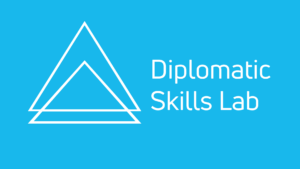Parliamentary Diplomacy
Objectives As we see it, Parliamentary diplomacy embraces: Our training sets out to show how to develop and leverage this branch of parliamentary activity to maximum effect. It is targeted at parliamentary officials and MPs involved in international work (some of whom may only have been recently elected for the first time), for example as a member of a Foreign Affairs Committee or an inter-parliamentary friendship group. It explores the gamut of inter-parliamentary forums and activity, showing how to exploit the opportunities they provide. It rehearses the essential skills of remaining sensitive to cultural diversity. Ever mindful of the domestic political context, it explains how MPs and officials can keep themselves up to speed with developments in other countries, regions and international organisations so as to ensure that they are on the same wavelength as their counterparts. For officials, it teaches the skills around briefing a busy MP both orally and in writing. For parliamentarians, it explores the optimal use of social media in parliamentary diplomacy both to advertise presence to an international audience and to win support for and to deal with criticism of domestic policy. It also shows how parliamentarians can support democracy in other countries, advocate for human rights and fair electoral processes, and debate seemingly intractable problems in their own or other countries as a way of trying to find innovative solutions. Above all, and using the skills rehearsed above, it aims to identify the ideal international partners for a country’s parliament at a particular stage of the country’s political development. It points to ways in which those partners can be actively engaged to win support for advancing desired outcomes.
The traditional definition of diplomacy is focused on the international role of governments – a diplomat is an envoy of the executive branch and represents the positions of his or her state. Members of Parliament, however, are politicians who hold political beliefs which may or may not coincide with the government and their country’s official position on a given issue. Parliamentary diplomacy allows the parliamentarian a flexibility that is denied the diplomat. Not bound by the positions taken by the government, parliamentarians are ideally placed to build bridges between conflicting parties. They are democratically mandated diplomats, endowed with freedom of speech and independence in their international activism.
Learning outcomes
The parliament in question will enjoy stronger relationships with its partners in international bodies and national parliaments, an enhanced international reputation, and find itself in a position to play a critical role in securing the country’s wider policy objectives such as Euro-Atlantic integration. On the basis of the needs assessment report which we establish at the outset and the report and recommendations with which we conclude every assignment, a parliament should be in a far stronger position to advance its international agenda. Commensurate with its resources, it should have a targeted and prioritised list of stakeholders in other parliaments and inter-parliamentary bodies whom it sees value in cultivating, with a joined-up strategy for managing each relationship, and be equipped with the skills, staff and resources to make those relationships productive. We look to secure three over-arching outcomes:
Methodology
Our training is tailored to the specific needs of the parliament in question (its experience, procedures and resources as well as its existing relationships with government as well as other national parliaments and inter-parliamentary bodies). When invited, we begin with a needs assessment visit where we interview MPs and parliamentary officials to establish a baseline level of skills and staffing resource for international work.
Our experience
This training, which usually takes the form of a consultancy over a number of months, is conducted by diplomats with a background in parliamentary work. Our trainers have worked with national parliaments in international bodies as well as with the European Parliament. They have followed the underlying politics with the eye of a professional diplomat. They count MPs as friends as well as professional colleagues. We also engage former MPs and MEPs to participate in the training. Consultancies on this basis have successfully been carried out for officials and parliamentarians from EU accession states.
Our experience with Parliamentary Diplomacy training include courses for the Assembly of Kosovo in 2023.


